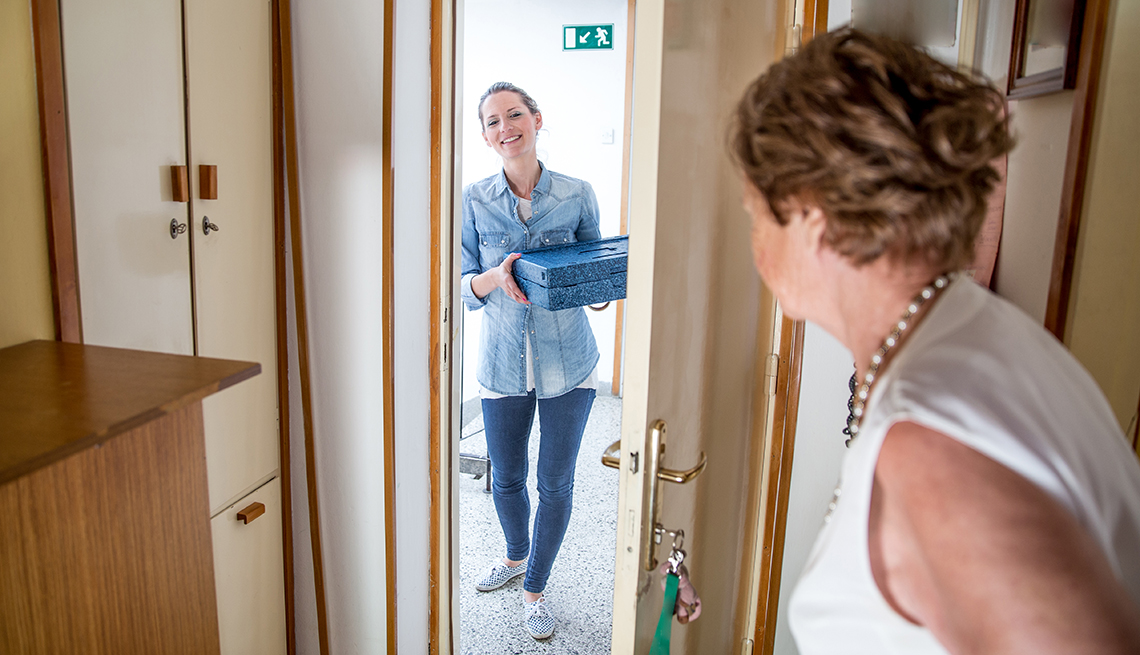
- Select a language for the TTS:
- UK English Female
- UK English Male
- US English Female
- US English Male
- Australian Female
- Australian Male
- Language selected: (auto detect) - EN
Play all audios:
4. CONTROL WHAT YOU CAN Getty Images “The most difficult thing for people to do is surrender control, or admit that they don’t have control over something; that’s relationships, jobs,
everything. A lot of financial anxiety is around larger issues over which individuals have no control. The sooner you get to acceptance, the better you’ll feel. Instead, focus on your
individual choices and key wellness barometers. One is cash flow. ‘Do I have enough money to pay all my bills and make sure I’m not using credit to fund my lifestyle?’ ” _—Lynnette
Khalfani-Cox, CEO of AskTheMoneyCoach.com and author of _Zero Debt 5. NEVER STOP SHOPPING AROUND “You can manage your monthly expenses without making huge sacrifices. A lot of times when we
do autopay, we don’t look for extra costs or what we’re not using. For example, car and home insurance: People shop around for the best policy when they first buy, but over time that price
will increase, and people don’t shop around again. That happened to me. My overall house payment went up, and it was my insurance [that caused the rise]. I got better coverage and saved
$1,000, and at the same time I raised my deductible. I should have shopped around sooner.” _—Andrea Woroch, consumer savings specialist at AndreaWoroch.com and coauthor of _Pivot With
Purpose 6. FOCUS ON THE GOOD NEWS “There’s some good news inside the bad news — OK news, at least. Suppose you’re a homeowner, and you don’t expect to move. Housing inflation is not
affecting you in any fundamental way. Suppose you’re living on Social Security, and you have a mortgage payment. Your Social Security benefits go up, but your mortgage payment remains
unchanged. On an inflation-adjusted basis, your repayment of the mortgage has just dropped. Younger retirees want to get the most out of their inflation-protection resources as possible. One
way to do that is to maximize your Social Security benefit. Most people should be waiting until 70, and only 6 percent are. That’s particularly problematic when you have inflation, because
you’re giving up the benefit of having more of your resources protected against inflation.” _—Laurence Kotlikoff, professor of economics at Boston University and author of _Money Magic 7.
OPEN A BANK ACCOUNT “The pandemic and tough economic conditions have exacerbated financial concerns unique to older adults. They’re being targeted by scammers and getting separated from
caregivers who have helped manage their money. One way to combat this, particularly if you don’t have a banking relationship, is to attend a money management or financial literacy workshop
conducted by a credible nonprofit organization to understand how bank accounts work. Bank accounts are the best way to safeguard against theft. Unlike paper checks, the money can be directly
deposited, and in some cases, you may have earlier access to your benefits. In cases of fraud, financial institutions will investigate and support the recovery of funds, if possible. “
_—John Hope Bryant, entrepreneur, founder of Operation Hope and author of _Up From Nothing: The Untold Story of How We (All) Succeed








